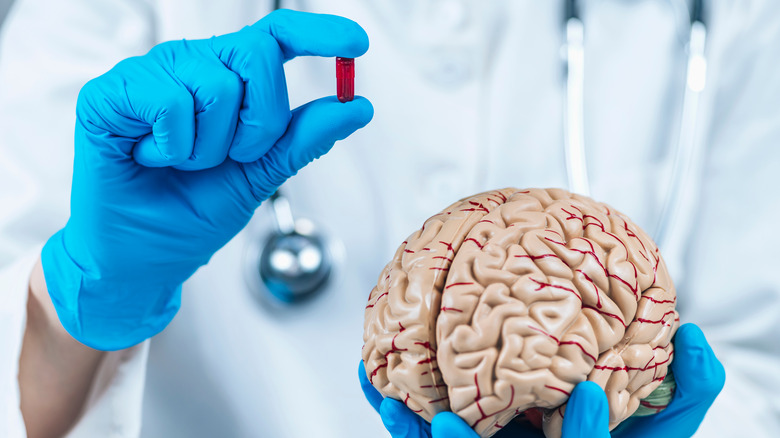What Is The Nocebo Effect And How Is It Impacting Treatment?
Most people have heard of the placebo effect, which occurs when your body responds positively to a nonactive treatment, but what about the nocebo effect? The nocebo effect is when your body responds negatively to an inert treatment, according to Verywell Health. Some of these negative side effects, which can't be attributed to the biological activity of the treatment, include fatigue, nausea, drowsiness, headache, stomach pain, insomnia, difficulty concentrating, and loss of appetite.
A 2011 meta-analysis published in the journal Cephalalgia found that the nocebo effect appeared to be common among people participating in clinical trials for headache disorders, causing them to be more likely to drop out of the research. Research has shown that the nocebo effect is also associated with clinical trials for pain treatment, which can impact how participants perceive pain and ultimately affect the outcome of the trial.
According to another study published in the Postgraduate Medical Journal, researchers found a link between the expectation of side effects and the nocebo effect. The study's findings revealed that control group participants were more likely to respond negatively to a placebo treatment after being informed of the potential side effects of a drug, which was only being tested on participants in the experimental group.
What causes the nocebo effect?
While the exact cause of the nocebo effect is unknown, experts agree that there are a number of possible explanations for the phenomenon. According to Medical News Today, the nocebo effect may be influenced by both psychological and neurobiological factors. "A lot of factors come into play. For example, our prior experiences with the health system and related treatments," Dr. David A. Merrill, an adult and geriatric psychiatrist at Providence Saint John's Health Center in Santa Monica, CA, told Medical News Today. "If you've personally had complex health stressors with a difficult treatment course, you might be anticipating more difficulty with additional treatments."
In other words, a person's negative expectations of certain treatments and their associated side effects can result in negative outcomes. As a result, the nocebo effect can cause people participating in clinical trials to over-report side effects. This can adversely affect the outcomes and continuation of the trials. Although some studies have indicated that limiting information about drug side effects may reduce the nocebo effect, doctors are legally and ethically required to provide patients with sufficient information about their medical care.


